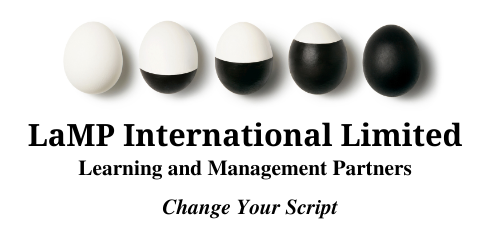
You have spent your whole career investing time, energy and money into your growth and development. If you did not invest in you, the organisation did and, as a result, you have been fortunate enough to climb the corporate ladder of success and lengthen your employee shelf life.
Maybe you have achieved this by staying in one company for your entire career, being promoted until you finally enter the realm of formal leadership. Or perhaps you have had to move across industries, companies and countries to get the experience and rise that you desired.
Whatever route you took to strengthen your learning and management capability, you were recognised as a good leader, promoted and elevated into that highly sought after arena. But, you have recognised that things around you are changing and you are beginning to question how relevant or effective you still are.
How Do You Want To Be Remembered?
The truth is, good leaders, manage their employee shelf life. They know when it is time to move on and allow others to step in and lead the troops. So perhaps I should begin by asking what kind of leader do you want to be remembered as being?
Average, good or, great? A hanger-on, irrelevant or effective?
Making the right choice, at the right time though will go a long way in determining how you are remembered and also how others will relate to you as you move forward. As Stephen Covey says, “Begin with the end in mind.” In other words, let how you want this to end guide the path that you take and the turns you make at each juncture.
This was fairly easy for me to do as I was paying attention to what was happening around me as my career evolved, beginning with my departure from supervision in my early twenties because I sucked at it. Of course, I could have stayed and fought my way through it, but I was ill-prepared and I would have done more damage than good.
The damage actually started with the classic mistake that is made every day in organisations. I was appointed a supervisor because I was “bright”, not because I knew how to manage people. Nothing in my life up to that point had prepared me for supervision and I felt it – hard.
But, How Do You Know When To Go?
Thankfully for me, during that first experience, my staff were the ones who let me know that I needed to go. And I say thankfully because it could have developed into a rotting mess, as it often does with many lives being scarred and bitter memories being planted to grow into lifelong aches and pains.
You see when you are managing and leading people, you are impacting their lives. Just as you do with children’s lives. You influence people, more so when you are in a role of authority. That influence could be positive or negative. As a leader, you want it to be as positive and enabling as possible.
I am not referring to what many describe as the “soft stuff” and being “liked”. It is great if you are liked, but my focus is on credibility, respect, courage, discernment, support, fairness – those descriptors. This is how character takes shape and how a solid, door-opening reputation is developed.
But, I am digressing a little. You can go for one of two reasons. Either It is working well and you are on top of your game or it isn’t and you are starting to slide down a well-oiled A-framed rooftop, with no help in sight. I much prefer the former.
Hold On Until You Drop (With Your Reputation)
I have experienced many who chose this path. It is fine, once you keep yourself relevant, changing to meet the demands, keeping abreast of the learning required to keep your effectiveness high and your respect well-placed.
However, when you hold on for the wrong reasons, cracks start to appear and soon you are simply buying time until the inevitable comes. Many things can negatively impact our effectiveness in a role when we stay too long.
Ill health, poor judgment, need for income, fear of losing status and position, loss of support as the guards change, new expectations, new ways of doing things, old styles being applied to manage new behaviours, different team members playing a different game. The list is endless.
Decision-making also takes a beating the longer we stay in a role. Change is happening at lightning speed today and that is expected to get even faster as situations change in front of our eyes. COVID-19 is an excellent current example of that. Each day seems to bring new requirements and new demands for learning and management.
There is another fundamental aspect of being in a role for too long. Unless you are doing the same thing, the same way every day for the entire duration of your time in your role, changes will be required.
Step Off On A Cloud (With Your Reputation Under You Wings)
As organisations develop and mature, they will require different things, just like human beings do. For example, a start-up will require all hands on deck with tasks crossing roles and everyone basically using their initiative to do what is required to get the job done. There is little room for structure and exclusivity.
As the company grows, more formality and continuity may be required for each role, such as a dedicated front-line Customer Service person to convey trust and consistency.
Not everyone has the skills to move from designing and building to maintenance. Recognising this may serve you well. If you thrive in the diversity and variety that a young organisation requires, then you may want to make a decision to move on to a new role, project or organisation to maximise your effectiveness.
I am not good with routine on a long-term basis. I enjoy the challenges, thrill and uncertainty that accompany doing new things, designing and building. When it gets to maintaining and routine, it is time for me to hand to over. I will get bored and lose some of my effectiveness.
Having knowledge of this, I have managed my career across roles, industries and countries. When the need reaches this stage I prepare to hand-over and move on.
What Is Your Shelf Life?
So what drives you?
Whether you are leading your own life and career or in a formal leadership role in your organisation where you are responsible for leading other, knowing your employee shelf life could actually give you a lot of leverage, respect and admiration.
How often have you seen this play out in the public eye?
Leaders who are in charge of organisations and projects continuously failing in their roles but holding on amidst all the negative feedback, comments and accusations.
Do you see this in your organisation?
Are you at a juncture now and questioning your relevance or whether you should move on?
Change is never easy, especially when you have been in a role for a long time. But, you may actually be doing yourself an injustice by holding on, even with one hand. It may make much better sense to make a clean cut, reassess your worth, goals and objectives and move on with a fresh start.
You may gain more respect, credibility and followers in the process.
Do you want to have a better understanding of your shelf life?
Leave a Comment below and let us know your thoughts on employee shelf life, what resonated with this article or, how we may be able to support your growth and development.
Subscribe to our Newsletter for more engaging articles, ebooks and first-hand insight to our workshops, seminars, webinars and training programmes.
Follow our Founder’s journey and change your life for the better.






“The truth is, good leaders, manage their employee shelf life. They know when it is time to move on and allow others to step in and lead the troops. So perhaps I should begin by asking what kind of leader do you want to be remembered as being?” – Cassandra Patrovani …. This jumped out at me in many ways as it is something I ask my self in a different way even my personal life.
Cassi – this article has been captured in the most real form for me. Also, it is something I am currently experiencing and a lesson for me as to what not to become or to be.
“However, when you hold on for the wrong reasons, cracks start to appear and soon you are simply buying time until the inevitable comes. Many things can negatively impact our effectiveness in a role when we stay too long.” – Cassandra Patrovani …. I think for most persons they simply buy time as you said and demotivate the team. This is very selfish and impacts negatively in the organization.
In closing, I would like to thank you for this profound article on “Employee Shelf Life” as it resonated with me. I am sure we would be having further discussions on this topic.
Cheers!
Alicia
Alicia,
“Employee Shelf Life” is one of those often misunderstood or neglected areas of organisational life.
It holds many risks – personal, professional and of course, within the organisation.
Think about it within the context of succession, performance management, reward, recruitment.
I could go on and on.
For now, dive a little deeper:
https://lampinternationaltt.com/employee-shelf-life-what-is-your-expiration-date/
to understand how to effectively manage YOUR Expiration Date.
Happy learning!
Cassandra and the LaMP Team ?